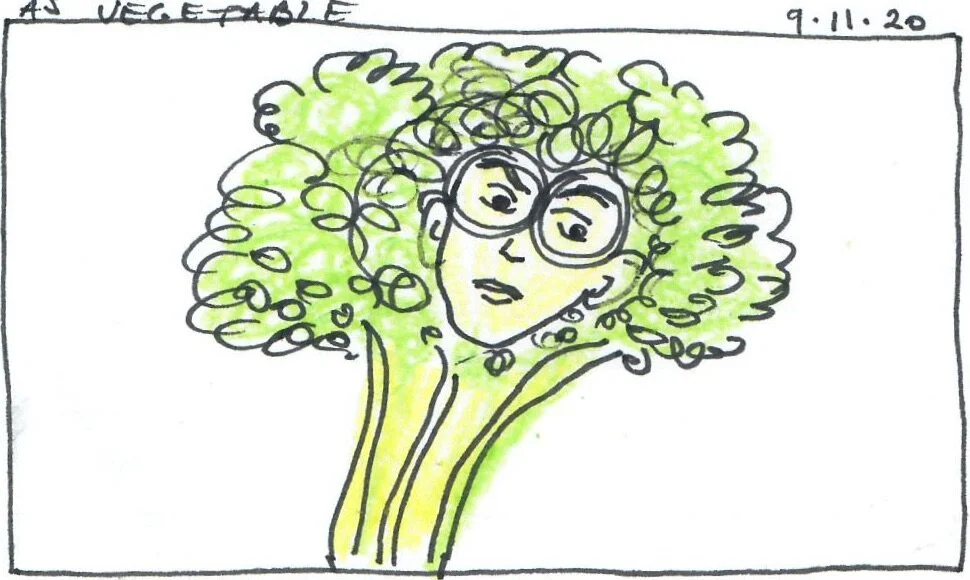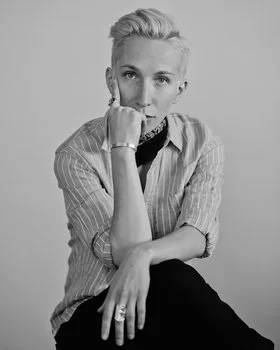Writing
Photo by Kyoko Hamada
Personal Essays, Reviews, & Journalism
When my son Finn wants to go to the pool he will point at a swimsuit. It doesn’t have to be his swimsuit. It could be mine, or his sister’s, or even a just beach towel left by the door. Without the benefit of language typical of boys his age — 14 going on 15 — Finn still makes his wants known. And he wants to go swimming.
One morning early in the third year of the now times, my daughter wakes up and sits on the sofa, hair tangled, back slouched, eyes bleary. I’m already downstairs, in the kitchen, and on seeing her, offer breakfast.
Confessional writing has gotten a bad rap in intellectual circles, seen as more suited for the diary than the bookshelf. Melissa Febos is the queen of the confessional, or rather a literary and political offshoot. Her last book, “Girlhood,” about the experience and expectations of living in a precociously developing female body, is currently up for a National Book Critics Circle Award for criticism. In “Body Work: The Radical Power of Personal Narrative,” Febos hopes to revamp the genre’s reputation.
On a recent deep clean to pass the hours stuck inside, I unearthed a bill in the back of my desk drawer. I turned to my husband, Jeff: “Look, here’s that $50 I can’t spend!”
I’ve had this $50 bill since 2006. Before that, it was my maternal grandfather’s. After my mom died in a freak car accident when I was three, I spent every summer at her parents’ home in Kewanee, a small town in central Illinois. My grandfather was the chief radiologist at the local hospital. Most people knew him as Dr. Binder, my grandmother called him Paul. I called him Grumpa.
Allison Moorer opens her new memoir, “I Dream He Talks to Me,” with a letter to her nonverbal autistic son, John Henry. The Grammy-nominated singer-songwriter writes, “I wasn’t sure how you would feel about me telling people these things about us, so I wrote every word here imagining you were reading each one over my shoulder.”
When Lawrence Ferlinghetti died this week at age 101, nearly one month shy of his 102nd birthday, many of my friends, even writer friends, expressed surprise on social media. I didn’t even know he was still alive! Indeed, Ferlinghetti outlived all the younger Beat writers he once published, including Jack Kerouac, William Burroughs, Allen Ginsberg, and Greg Corso.
For my son, each birthday has been accompanied by complicated feelings, a reminder of the milestones he has not met and may never meet.
The summer of 2020 will be remembered as the summer when everything was canceled -- outdoor festivals and concerts, summer camp and swimming pools.
The author had been waiting over two years for an inherited set of midcentury Hans Wegner Wishbone seats to return from re-caning. Then things took a different turn.
The computer is open and there is Finn, sitting in a long-sleeve blue top and shorts. His shirt glows Yves Klein blue through the screen of Skype. We wave. We sing to him. But Finn is more detached during this call, I notice, more apt to look out the window.
On a cold Saturday morning, a few weeks into 2012, my husband and I woke up to a feather bomb. Our 4-year-old son Finn had ripped open his down pillow in the night, launching shovels full of feathers in flight around his bedroom.
For many families like mine—with members who are on the spectrum or have other sensory or mental disorders—parks and playgrounds are vitally important
From ukulele lessons to speed-dating events, local shops are attracting loyal customers seeking a social hub in an online world. And they’re buying books, too.
Writers may be familiar with that peculiar sensation that comes in a moment of crisis, trauma or transition when you simultaneously feel all the feelings of that instant and also know, with bone-marrow certainty, that you will one day turn this moment into art. For Jill Soloway, that moment came when the author’s father came out as transgender.
From our living rooms to public stages, we can’t seem to get enough of one of our oldest art forms.
My 11-year-old daughter Annabel and I were stuck in rush hour traffic driving from our home in Cambridge to an event in Brookline when Lou Reed’s Walk on the Wild Side started playing on the radio. Sitting in the front seat, with Annabel in the back, I cursed the quality of Boston driving under my breath then got lost in Lou Reed’s verses to Walk on the Wild Side, a song which I’d long ago learned by heart…
If you watched the Academy Awards last month, you might have noticed a different kind of pairing on the red carpet. Where nominees typically bring romantic partners or family members, Manchester by the Sea star Michelle Williams was accompanied by her best friend, Busy Philipps. Philipps, who has two children with her screenwriter husband, has said she and her female friends talk about forming a commune and raising their kids together, without men. And they may be onto something. Today, fewer American women in their early 30s are married than at any other point since at least the 1950s. The US marriage rate overall hit a record low in 2015, seeming to confirm an earlier study that found 55 percent of singles are not looking to get married. With women increasingly marrying later or not at all, the supporting companionship once provided by husbands is now often being provided by friends.
Those of us who were raised the only child of a single parent know how intense the relationship can be. Different days you may play the role of child, parent, sibling or emotional crutch — some days all at once. As you get through it, you try to find space for yourself, to become someone outside the all-enveloping world that your parent has provided. This is the main struggle driving iO Tillett Wright’s debut memoir, “Darling Days.”
It's a universal truth that relationships take work, but there's little precedent for what that work may involve when one's partner comes out as transgender. For couples who remain together through a gender transition, it can provoke a complicated reckoning with just how much—and who—has to change.
If you were to see me in the Target parking lot near my home in Massachusetts with my blue Subaru Outback and my two school-aged kids, you'd probably never guess that I had an unconventional upbringing...
Before I had children I didn’t think I would care very much about their looks, certainly not in any remarkable way. Doing so would reveal a gross degree of superficiality, a collusion with a society that already places too much emphasis on attractiveness.
Rachel Israel has done something I’ve never seen before on film. In her award-winning short, “Keep the Change”, she’s made a feature centering on the romance between two people on the autism spectrum, starring actors on the spectrum.
A mother is suing after she and her daughter are kicked off their flight home. It could have just as easily been me.
I called him Eddie Body. At four years old, language was my playground. “Eddie Body’s not anybody! Eddie Body’s not anybody!” I’d repeat, relishing the near symmetry of the sounds. Eddie Body was Dad’s new boyfriend, his first serious relationship after our move to San Francisco in 1974. There’d been different men—good-looking men, funny-looking men, almost always tall and skinny and young—that I found in Dad’s bed in the mornings. But it was different with Ed. He was the only one with whom I became close. He is the only one I can remember. We spent six months living with Eddie Body. I loved him.
As the daughter of a gay man in the 1970s and ’80s I learned how to pass early in my life. I observed that, by behaving in certain ways and omitting certain details of my home life from casual conversation with kids and their parents, they might think I was like them.
I was nineteen years old when I first read Sylvia Plath’s poem Daddy. I was studying, my junior year abroad, sitting on my bed in a drafty chambre de bonne in the west end of Paris, when I hungrily opened a letter from my dad and discovered, on the back, the faint photocopied poem...
Anthologies
Only Child: Writers on the Singular Joys and Solitary Sorrows of Growing Up Solo
Edited by Deborah Siegel and Daphne Uviller
“The gems of this volume are the authors who trade analysis for storytelling, such as magician and author Teller’s life-affirming New Year’s Eve 1997, Peter Terzian’s Postcards to Myself, Rebecca Walker’s Blood of my Blood and Alysia Abbott’s A Pair of Onlies.”
Out of the Ordinary: Essays on Growing Up with Gay, Lesbian, & Transgendered Parents
Edited by Noelle Howey and Ellen Samuels
Out of the Ordinary won the 2000 Lamda award for Non-Fiction Anthology, and Young Adult Non-Fiction



























Since moving to West Cambridge almost five years ago, we’ve been coming to your diner about once every week or two, but I never explained exactly what these outings mean for my family, and it is time that I do.